Fall Protection
How to Prevent Struck-By and Backover Incidents
5 Ways to Improve Bucket-to-Ground Communication
Fall Protection
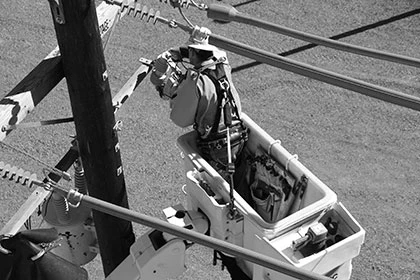
Fall Protection: The ABCs of Connecting Devices
A personal fall protection arrest system (PFAS) is comprised of three vital components: an anchorage, body wear (full-body harnesses), and a connecting device (a shock-absorbing lanyard or self-retracting lifeline). The safety of at-height workers depends on these three components, and each one must be in place and used properly to provide maximum worker protection.
When discussing fall protection, anchorage connectors and full body harnesses receive a lot of attention. We don’t always stop to think...
Related Articles
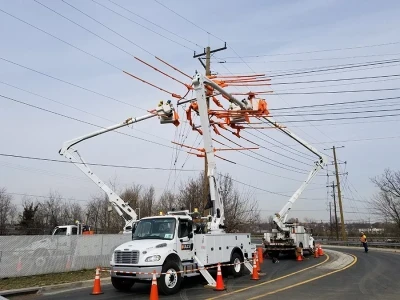
5 Ways to Improve Bucket-to-Ground Communication
Cranes, aerials and bucket trucks are common sights in construction zones and among maintenance crews around our cities. What better way to hoist materials to high places or to move workers closer to the task?When your crew includes an above-ground operator in a bucket or cab, they’re linked...

FERC Approves Interconnection for Talen Energy, Amazon Data Center
In a significant move that underscores the growing demand for reliable and sustainable energy to power the expanding digital infrastructure, the Federal Energy Regulatory Commission (FERC) has approved an interconnection agreement between Talen Energy, Amazon Web Services (AWS), and Exelon. This...

Safety Reports for Utility Workers
Protecting utility workers with documented reporting BY MIKE DOHERTY, PowerTel Utilities Contractors Limited Within the lineman trade, accountabilities for the documentation of various inspections, job safety analyses (JSAs), audits, safe work practices (SPGs), qualifications, safety meetings,...
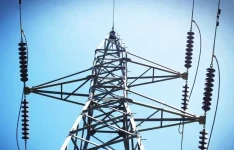
FERC Complaint Targets Duke, PJM Transmission Planning
A coalition of large energy consumers and ratepayer advocates has filed a complaint with the Federal Energy Regulatory Commission (FERC), urging the agency to prohibit transmission owners from independently planning "local" transmission projects exceeding 100 kilovolts (kV). The coalition argues...
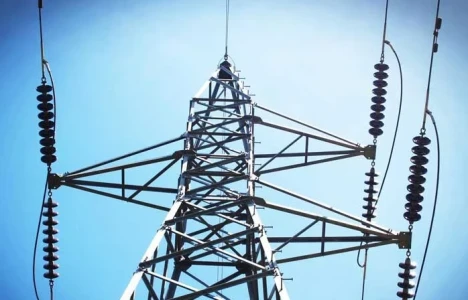
FERC Complaint Targets Duke, PJM Transmission Planning
A coalition of large energy consumers and ratepayer advocates has filed a complaint with the Federal Energy Regulatory Commission (FERC), urging the agency to prohibit transmission owners from independently planning "local" transmission projects exceeding 100 kilovolts (kV). The coalition argues...

12 Tips to Protect Against Common Lineworker Safety Hazards
Lineworkers face numerous risks daily, from respiratory ailments to electrical hazards. These dangers can result in severe injuries, low blood pressure, bleeding, and vomiting. However, by adhering to established safety protocols, contractors and employers can significantly reduce the likelihood of...
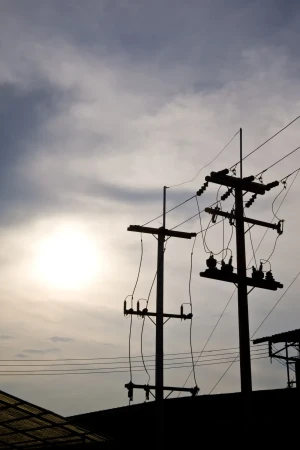
FERC Rejects PJM Transmission Planning Change
The Federal Energy Regulatory Commission (FERC) has rejected a proposal from PJM Interconnection, one of the United States' largest regional transmission organizations, to alter its transmission planning protocol. The decision represents a significant victory for state regulators who had expressed...

FERC Approves Interconnection for Talen Energy, Amazon Data Center
In a significant move that underscores the growing demand for reliable and sustainable energy to power the expanding digital infrastructure, the Federal Energy Regulatory Commission (FERC) has approved an interconnection agreement between Talen Energy, Amazon Web Services (AWS), and Exelon. This...
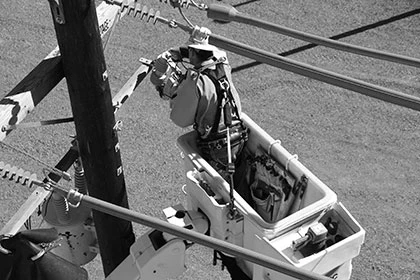
Fall Protection: The ABCs of Connecting Devices
A personal fall protection arrest system (PFAS) is comprised of three vital components: an anchorage, body wear (full-body harnesses), and a connecting device (a shock-absorbing lanyard or self-retracting lifeline). The safety of at-height workers depends on these three components, and each one...
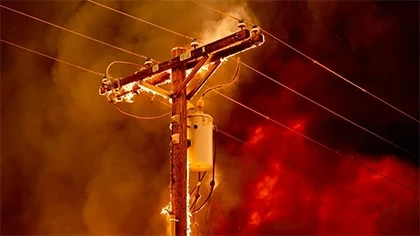
Lineman Safety during a Wildfire
If you wanted to create a recipe for disaster, the beginning of the 2021 wildfire season would be a good place to start. Nearly 90% of the western U.S. is suffering through extreme drought. The snowpack set new low levels there as well. A record-breaking heatwave steamrolled the Pacific Northwest...
